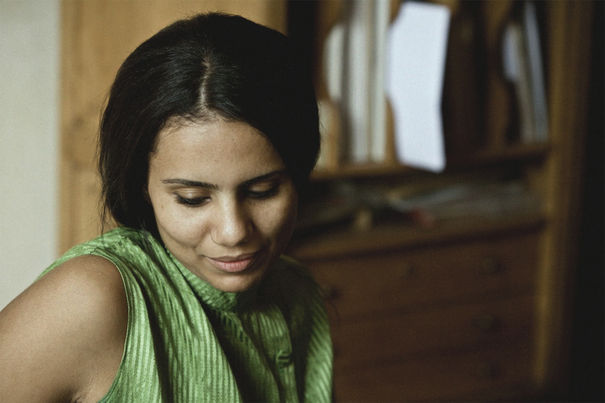Requiem for the city of Cairo, by Tamer El Said
by Aisha Rahim

Nos ultimos dias da cidade
In the Last Days of the City shows us a bleakness typical of a requiem. We don’t know who is infecting whom with the breath of death. Is it the city of Cairo which after 30 years of being suffocated by Hosni Mubarak’s regime is on the eve of the Arab Spring? Is it the fictional character who appears interspersed with the documentary images? The scenes filmed by the Egyptian filmmaker Tamer El Said are that of 2009, two years before the revolutionary movement that would take root in his country. It is no accident that in the fictional aspect of the film we see a director lost in the editing of his film, and in his life. His mother is in the hospital with a terminal illness, his girlfriend is about to leave the country, and he is apartment hunting in a city in ruins.
What is the purpose of film in the interlude between these two movements; the one that comes from the streets of the Egyptian capital, and the one that comes from within Khalid? The film, El Said’s first feature film, screened at important festivals like Berlin, answers us with more questions. We are captured by the title, that eloquently appears on the final screen of the film. In the Last Days of the City propels us into another world of questions. Might these be the last days of Cairo as we know it, or Khalid’s last days there? Or are we looking at the end of the city as a state and a space for society?
Whether is it through the film itself or through the film within the film, In the Last Days of the City poses questions about the role film can play in a crisis. Or how the director can arise as a laborer in a space of division and reconstruction.

